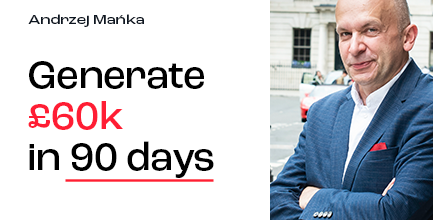The three essential questions on your personal finance

Categories

#1. Is it possible to be wealthy without making a budget?
Budgeting is not a very exciting activity for most of us. However, it is incredibly useful and it seems to be the foundation for any financial success.
Few people seriously budget their money, and therefore, few of us are financially independent. A budget is a kind of “litmus test”.
Are you able to devote regular time to keeping a spending inventory, planning your finances, and controlling your cash flow?
Or do you think you can manage your finances without that too?
Take a look at an example that will help you understand the essence of budgeting.
Can you imagine driving a car without a speedometer, fuel gauge, oil level, temperature measurement, or tire pressure level? The dashboard in your car is like a command center that allows you to make decisions based on accurate data. The same is true for your budget. It should be a regularly-used command center with all the key data required to make everyday financial decisions.
If you want to run a marathon or achieve some other goal, like losing weight or building muscle mass, you need to rely on accurate data. We use sports apps that, among other things, show the distance we ran or marched, along with our time or speed. Then there are other important factors to consider such as diet, calories, rest, recovery, etc. As the eminent management expert Peter Drucker neatly put it, ‘if you can’t measure something, you can’t manage it’. You need to have a similarly meticulous, methodical, and creative approach to your finances.
So dive into your expenses, receipts, bank statements, loan interest, and any other documents that relate to your finances for a few hours, or perhaps much longer.
Your budget should be at least a year long. That way, you have the right perspective and can include far more expenses than planning a monthly budget. You can also clearly see that each month has a different structure of expenses and sometimes income (our finances look different around Christmas, vacations, and other important anniversaries, as well as when we expect bonuses, etc.)
Remember a few other important things too:
- Assign each expense to the appropriate category. They should not be too general (like food or clothes).
- Be honest with yourself! Don’t pretend, hide, underestimate, skip, etc.
- If you are doing a budget for the first time, it may take many hours. After that, the process will become much easier and faster, but preparing a budget at the beginning can be time-consuming! Don’t forget, it will be worth it a hundred times over!
To think about
How can you achieve your ambitious financial goals with a household budget? What conclusions come to mind when you look at your finished budget? Do you have a deficit? Do you have a surplus? Or do your earnings and expenses balance perfectly? What decisions will you make now? Will there be spending cuts? Do you need to earn more? Do you need to save more?
To conclude:
It is impossible to achieve sustainable financial independence without keeping a budget. Planning and controlling your finances is the foundation of financial success.
#2. Is it worth saving small amounts of money?
Technically, saving is very simple. Every day, week, or month you put some money aside in a savings account or simply into a transparent jar so that you can easily watch the growth. Yet from a mental and emotional standpoint, saving can feel much more difficult.
Our world is driven by spending and rampant debt. All the media and almost the entire internet are full of messages urging us to spend and consume – and get what we really want immediately.
Saving, however, requires completely different attitudes and habits. Saving is based on self-discipline and the ability to defer gratification, i.e. postpone the pleasures that consumption offers for later. Ultimately, saving will help you achieve and maintain financial independence.
If you want to save more, you need to start by carefully analyzing your lifestyle. Working with a budget will give you a useful framework for this.
Three rules for effective saving:
- Save along with the repayment of each loan installment in the ratio of 80/20.
This is a great way to also build up your reserve capital when you take a loan. If you can afford to spend £100 on monthly installments, take such a loan that the installment does not exceed £80. Put the rest, £20, into a savings account.
- Plan savings from a broader perspective – preferably, as part of a personal budget.
Saving is easier and much more effective when it is clearly part of your overall financial plan outlined in your budget.
- Don’t have a financial goal for your life yet?
Save “for sport,” for developing an essential habit. This habit will bring you a fortune!
To think about:
What amounts can you save on a weekly or monthly basis? What percentage of your income is this? What expenses can you give up so you can save more? Why do you want to save – what is your motivation? What will you spend your savings on?
To conclude:
It is definitely worth saving regardless of your income and even if you can only put aside £10 – £20 every month. Because saving is, above all, a habit that needs to be cultivated. It is a matter of values and internal discipline.
#3. Why do we have debt?
My parents created quite an impressive wealth, but they felt that paying attention to money was not a good idea. Education was more important. As a result, I entered my adult life armed with a diploma from the best Polish university – Jagiellonian University – and I started a fast career in international corporations. Then soon after… I fell spectacularly into debt.
Fortunately, I didn’t blame it on my parents, humanistic education, banks, or ubiquitous marketing.
I have always thought the key to success is taking full responsibility for what happens in our lives (even if deep down we feel that not all failures are entirely our fault). This mindset truly allows us to spread our wings.
Otherwise, we stay stuck in a sense of injustice (or something like that) and develop a victim mentality over time.
If you’re in debt, then – instead of worrying and agonizing – use the situation as a valuable lesson. The only way we can grow is through life’s challenges and hurdles.
For me, financial trouble was a great opportunity for intensive education. I soon discovered that knowing financial engineering alone is not enough to achieve financial success. You also (or perhaps mainly!) need planning and decision-making skills; organized, effective action; and emotional intelligence.
The most productive way to manage debt is to treat it as part of your overall budget and financial plan. If you want to tackle debt, you need two things: the right mindset, and the ability to develop and implement a good plan (we’ve prepared a handy debt management template for you).
Remember: action eliminates fear. So get to work!
To think about
To what amount can you safely get into debt? Can you achieve more serious financial goals without taking credit?
To conclude:
Debts most often result from a lack of personal financial planning. Additionally, they are fostered by:
- A consumerist culture and extensive marketing efforts by companies to convince us that “real life” is about spending and living on credit.
- A lack of widespread financial and media education, which makes it easy for us to succumb to the ubiquitous consumerist propaganda.
- The way the economic system is designed: most of us are not able to meet our basic needs, such as housing or education, from our current income, hence the huge prevalence of credit.
Andrzej Manka
These fragments come from my online course “100 essential questions and answers about your personal finance and business”.
The inauguration of the course is taking place on Thursday, 25th November 2021, at 7 pm GMT, when we will have a special free workshop on personal finance.


